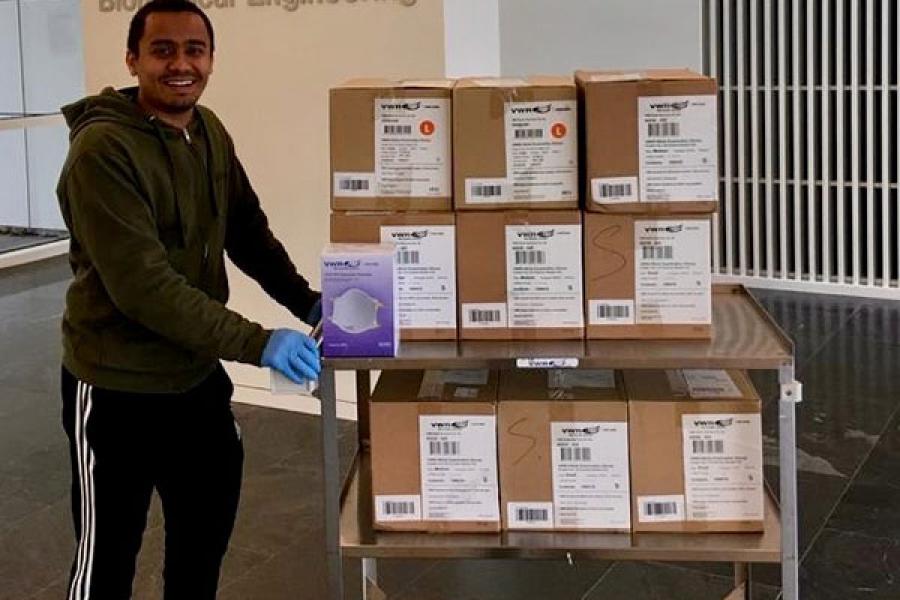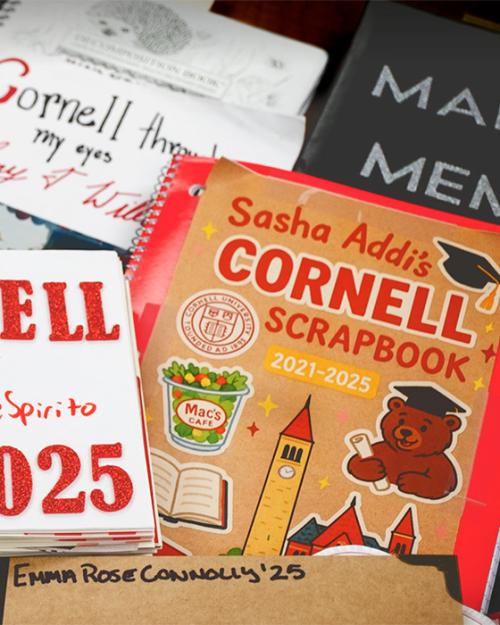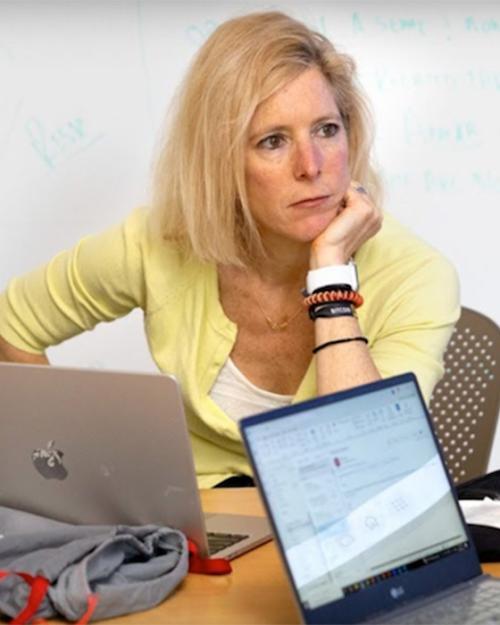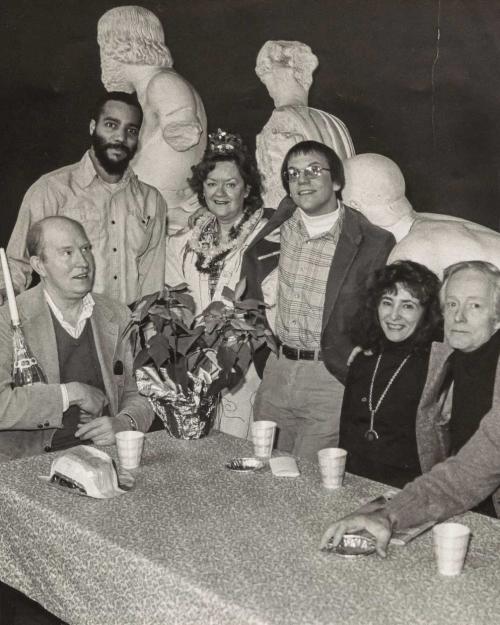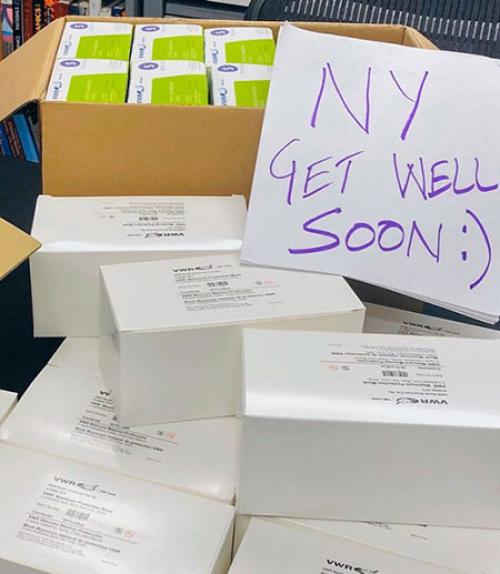As hospitals across the country try to manage a surge in coronavirus patients while also facing a global shortage in the protective gear needed to treat them, the Cornell community has banded together to donate crucial medical supplies to local health care providers.
“We have a lot of people working on the entire university effort,” said Frank Cantone, director of Cornell’s Office of Emergency Management, who has served as point person for the collection. “It’s easy to focus on a lot of the negatives of what’s happening, but in true fashion, we’ve got a lot of campus community members who are pulling together, even in very frustrating, scary and uncertain times.”
Faculty members, undergraduate and graduate students, university staff – everyone has stepped up in response to the COVID-19 pandemic, Cantone said.
The push to collect supplies began March 16 when Deputy Provost John Siliciano emailed college deans to ask if any of their research labs had extra viral specimen swabs or personal protective equipment (PPE) that could be sent to Cayuga Medical Center.
The response was immediate. Departments and units from almost every college echoed the call and began coordinating efforts to gather the supplies. Research facilities across campus turned into impromptu staging areas for collection.
In the College of Arts & Sciences, professors from numerous departments -- including physics, chemistry and chemical biology, neurobiology and behavior, and molecular biology and genetics -- stepped up to donate supplies. Ritchie Patterson, professor of physics and director of the Cornell Laboratory for Accelerator-Based Sciences and Education (CLASSE), organized a CLASSE-wide donation drive that collected coveralls, face shields, cases of shoe covers, gloves and more.
Chemist Jeremy Baskin’s lab was one of many donating N95 masks and cases of nitrile gloves. “We’re so happy to do our small part to support the essential and heroic work being done by the health care professionals at the Cayuga Medical Center to keep our community safe during this pandemic,” said Baskin, assistant professor of chemistry and Nancy and Peter Meinig Family Investigator in the Life Sciences in the Weill Institute for Cell and Molecular Biology.
Graduate student Adnan Shami Shah pushes a cart with donations from Jeremy Baskin's lab. Credit: Adnan Shami Shah.
The College of Veterinary Medicine donated 900 N95 respirators to CMC, as well as swabs for sample testing, and is looking into providing animal ventilators that can also be used for humans. Even groups not directly linked to technical or medical research, like MBA students in the Cornell SC Johnson College of Business, took up the call.
So far, the Tompkins County Emergency Operations Center (EOC) and its campus partners have collected more than 2,500 N95 respirators, many of which have been delivered to Cayuga Medical Center and the Tompkins County Health Department, Cantone said, as well as tens of thousands of gloves, procedure masks, surgical gowns and face shields.
Cantone is working directly with the EOC, which is facilitating all supply requests from health care providers in the community – from physicians’ offices to first- response agencies such as fire departments and ambulance services – in addition to the county health department and hospital. The effort has now extended beyond the county line, with boxes of additional supplies loaded onto the Campus-to-Campus bus on Monday, bound for Weill Cornell Medicine in New York City.
Contributions can be delivered to 201 Palm Rd.
Email Frank Cantone, fac2@cornell.edu, with questions.
Huiju Park, associate professor of fiber science and apparel design, specializes in researching chemical and biohazard protective clothing. His lab donated 10 disposable biohazard ensembles – essentially head-to-toe coveralls – and three high-quality, reusable hazmat suits.
“Considering the effort and sacrifice of health care providers working in the front lines of this battle against the coronavirus outbreak, my donation is just a small thing. But I’m glad I could help them with the resource I have as a Cornell faculty member,” said Park.
Faculty members aren’t the only ones contributing. Students in the College of Engineering’s Student Project Teams were adamant about donating 300 of their N95 respirators, plus assorted nitrile gloves and disposable coveralls, as they closed down their fabrication spaces in the basement of Upson Hall last week. The students often use various PPE items while working in multidisciplinary groups to engineer solutions to technical challenges, and were already primed for tackling this sort of real-world problem, according to Lauren Stulgis, the Swanson Director of Student Project Teams.
“Their level of dedication and commitment is really impressive,” Stulgis said. “Their initial reaction wasn’t about how the shutdown impacted them personally, but rather to think about what they could do that’s helpful in this situation. To me, it felt very selfless. They’re all stressed out and overwhelmed, their whole world is upended, and yet they have the presence of mind to think, ‘Okay, this is massively disappointing and painful, but what good can come out of it?’”
Linda B. Glaser, news and media relations manager for the College of Arts & Sciences, contributed to this version of the story.
Read the story in the Cornell Chronicle.
